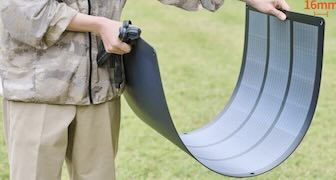Sep 07 (BBC) - Japan on Thursday successfully launched a rocket with a lunar lander at its fourth attempt this year.
It is bidding to become only the fifth country to land on the Moon, after the US, Russia, China and India.
Japan has twice failed to reach the lunar surface in the past year, with the latest mission postponed three times in August due to bad weather.
Two weeks ago, India made history when it successfully landed a spacecraft near the south pole of the Moon.
Japan's lunar lander, dubbed the "moon sniper", was launched into space on the H-IIA rocket by the Japan Aerospace Exploration Agency (JAXA).
If all goes well, it will land within 100m (328ft) of a location near the Shioli crater, on the near side of the Moon. Previous landers have touched down between several and dozens of kilometres from their intended landing sites. ...continue reading
Source: ANNnewsCH















